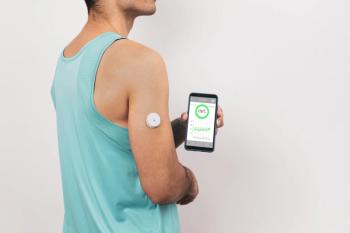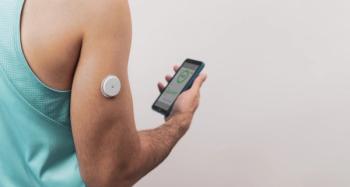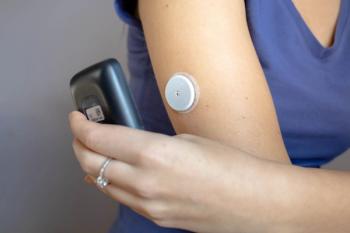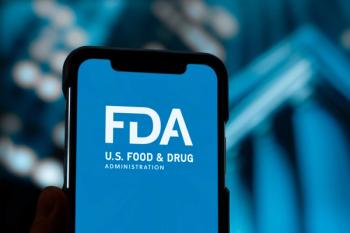
Sanofi Acquisition Will Further Distribution of T1D Therapy Teplizumab-mzwv
The drug is the first and only therapy to delay the onset of stage 3 type 1 diabetes.
Sanofi’s recent acquisition of Provention Bio1 is expected to further distribution of teplizumab-mzwv (Tzield), approved last November as the first and only therapy to delay the onset of stage 3 type 1 diabetes (T1D) in adults and pediatric patients aged 8 years and older with stage 2 T1D.
The company acquired Provention for approximately $2.9 billion. The purchase builds on an existing co-promotion agreement with Provention Bio that is already delivering teplizumab-mzwvto patients in need of the treatment, Sanofi said.
“Sanofi will continue to utilize its capabilities in diabetes to maximize [teplizumab-mzwv]potential as a transformative therapy globally and in the United States, aiming to delay the onset of stage 3 T1D for some of the approximately 65,000 people diagnosed every year,” the company said.
Pharmacists say the new treatment is one of the most exciting developments in treating T1D in years.
“I am most excited about the recent FDA approval of teplizumab in its use of delaying onset of T1D. Its recent acquisition by Sanofi shows promise in terms of increased T1D screening and use of this drug,” Diana Isaacs, PharmD, BCPS, endocrine clinical pharmacy specialist and director off education and training in diabetes technology at the Cleveland Clinic Endocrinology & Metabolism Institute in Cleveland, OH, told Drug Topics.
“This is an exciting development which will hopefully get us closer to a cure,” Kevin Fuschetto, PharmD, BCACP, assistant professor of pharmacy practice
At Northeast Ohio Medical University in Rootstown, OH, and director of clinical services at NEOvations Pharmacy Services in Rootstown, told Drug Topics.
“This medication will help delay the progression of T1D by at least 2 years—sometimes more. What this gives a patient who most likely will be newly diagnosed with T1D is time.”
Because T1D has a quick onset, patients go from feeling healthy to very sick in a short amount of time, Fuschetto noted. This leads to the need for multiple daily injections of insulin along with “many fingersticks to monitor glucose, huge lifestyle changes, etcetera. Teplizumab-mzwv can allow for the patient, family, and caregivers to learn and prepare for living with T1D."
Teplizumab-mzwvis also in late-stage clinical development for the treatment of pediatric and adolescent patients that are newly diagnosed with clinical T1D (stage 3), according to Sanofi. A phase 3 trial, PROTECT, is underway and top line results are expected in the second half of 2023, according to Sanofi.
When the FDA approved teplizumab-mzwv,2 the agency based its decision on results of a randomized, double-blind, event-driven, placebo-controlled trial with 76 patients with stage 2 T1D.
Trial participants were randomly assigned to receive either teplizumab-mzwvor a placebo once daily via intravenous infusion for 14 days. Over a median follow-up of 51 months, 45% of the 44 patients who received teplizumab-mzwvwere later diagnosed with stage 3 T1D, compared with 72% of the 32 patients who received a placebo. The mid-range time from randomization to stage 3 T1D diagnosis was 50 months for the patients who received teplizumab-mzwvand 25 months for those who received a placebo.
“This represents a statistically significant delay in the development of stage 3 T1D,” the FDA said.
The most common side effects of teplizumab-mzwvinclude decreased levels of certain white blood cells, rash and headache. The use of Tzield comes with warnings and precautions, including premedicating and monitoring for symptoms of cytokine release syndrome; risk of serious infections; decreased levels of a type of white blood cell called lymphocytes; risk of hypersensitivity reactions; the need to administer all age-appropriate vaccinations prior to starting teplizumab-mzwv; as well as avoiding concurrent use of live, inactivated and mRNA vaccines with teplizumab-mzwv, the FDA said.
References
1. Sanofi to acquire Provention Bio, adding to portfolio Tzield, the first disease-modifying treatment for the delay of Stage 3 type 1 diabetes (T1D). News release. Sanofi. March 13, 2023. Accessed March 29, 2023. https://www.sanofi.com/en/media-room/press-releases/2023/2023-03-13-06-00-00-2625367
2. FDA approves first drug that can delay onset of type 1 diabetes. News release. FDA. November 17, 2022. Accessed March 29, 2023. https://www.fda.gov/news-events/press-announcements/fda-approves-first-drug-can-delay-onset-type-1-diabetes
Newsletter
Pharmacy practice is always changing. Stay ahead of the curve with the Drug Topics newsletter and get the latest drug information, industry trends, and patient care tips.























